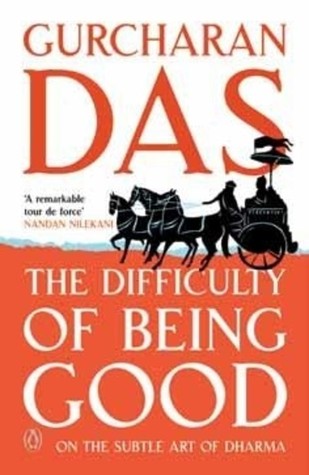The Difficulty of Being Good: On the Subtle Art of Dharma by Gurcharan Das - Review by Abhishek Desikan
Dharma is a word which has been used for millennia in the Indian subcontinent and later throughout the world, but it is also probably the word which has been taken for granted the most. By this I mean to say people have been using Dharma in a variety of contexts, each of which has added their own meaning to what Dharma actually means. It is not naive to suggest that Dharma cannot be translated into a single meaning in any language, and it can only be explored for its various facets.
By using one of the greatest epics of our times and one of the foremost authoritative texts on Dharma, the Mahabharata, as his backdrop, the author Gurucharan Das explores what Dharma means in varying contexts - through its characters and how each of them delves into Dharma at different conjectures in the story, as a comparison with 21st century events, as his own personal journey and above all as to what the epic itself claims to be Dharma.
The exploratory nature of this book is what I liked most about it, as it compares the epic in moral, religious, philosophical, socio-political and historical aspects to artifacts from other spheres. The nature and motivations of a Yudhishtra, or a Krishna are well analyzed in these aspects, to give the reader a holistic sense of the subtle nature of Dharma.
Perhaps the book doesn’t feel wholly satisfactory because the author doesn’t quite provide a fitting answer to the fundamental question of what Dharma actually is, but given that the epic itself leaves this question to the interpretation of the reader, one cannot assign too much blame to the author. The takeaway, for me, was to understand that Dharma is indeed subtle and its meaning is contextual and at the same time universal.
I also had a pet peeve that the majority of the references that the author uses to make his deductions were from Western sources, particularly Wendy Doniger, Romila Thapar, and Sheldon Pollock, who are not known for their unbiased views. On the other hand, the extensive bibliography was a treat for Mahabharata enthusiasts like me to explore more readings on this epic.

Originally published here.